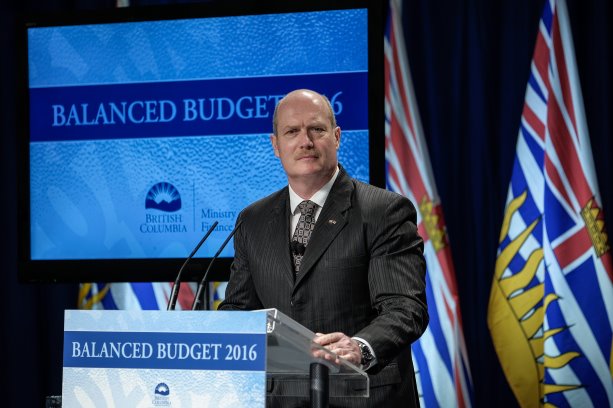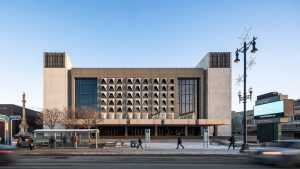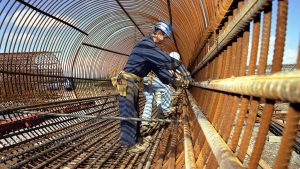The Province of B.C. delivered its budget, the third balanced budget in a row. It adds billions of dollars for infrastructure spending and will attempt to ease costs for buyers of newly constructed housing.
Government will once again balance its budget in 2015-16, and in each year of the three-year fiscal plan. Within the balanced budget, new and increased investments in government programs and services include:
"With a track record of successive balanced budgets, B.C. remains in a fiscal position envied by many jurisdictions around the world," said Finance Minister Michael de Jong. "We are forecast to lead Canadian provinces in economic growth this year and are continuing to make fiscal decisions that further strengthen our economy, create jobs and make life more affordable for British Columbians."
$143 million over three years has been allotted to enhance key areas of the B.C. economy that support jobs, including the new $75-million Rural Dividend Program to help small communities strengthen and diversify their economies, additional support for youth trades training, building the B.C. wood brand in India and additional BC Transit funding.
Government is acting to help the housing market respond to high demand for homes, which is resulting in rapidly rising prices, particularly among single-family homes in the Lower Mainland. Budget 2016 introduces a new full exemption from the property transfer tax on newly constructed homes (including condominiums) priced up to $750,000.
The exemption is expected to save purchasers up to $13,000 on a newly constructed home and is estimated to provide approximately $75 million in property transfer tax relief for new construction in 2016-17. The cost of this measure will be offset by adding a third tier to the property transfer tax rate, increasing the rate to 3 per cent from 2 per cent on the fair market value of property above $2 million.
Proposed changes to the Property Transfer Tax Act will also authorize government to collect new information from owners when they register their property. The government will resume collecting data that specifically identifies foreign purchasers. Beginning this summer, individuals who purchase property will need to disclose if they are citizens or permanent residents of Canada, and, if they are not, their citizenship and country of residence.
Government is also investing capital funding of $355 million over the next five years for construction and renovation of affordable housing for people with low to moderate incomes.
Budget 2016 will invest in new and upgraded infrastructure to support services and jobs. Taxpayer-supported infrastructure spending will inject $12 billion into the economy over the next three years, build new projects, and expand and sustain existing infrastructure. This includes:
- $3.1 billion in total transportation infrastructure investment, including highway upgrades and transit infrastructure.
- $2.9 billion for new major health-care projects and upgrades to health facilities, including the new Centre for Mental Health and Addictions.
- $2.5 billion for post-secondary facilities, including building capacity and helping meet the province’s future workforce needs in key sectors, as set out in the B.C. Skills for Jobs Blueprint.
- $1.7 billion to maintain, replace, renovate, expand and seismically upgrade K-12 school facilities, including new school space to accommodate increasing enrolment.
The surplus forecast in each year of the fiscal plan helps keep taxpayer-supported debt affordable. By the end of 2015-16, the direct operating debt will be reduced by $2.2 billion since government resumed balancing its budget. Under the current fiscal plan, with continued fiscal discipline, there will be an opportunity for B.C. to be free of operating debt as early as 2020 – the first time in 45 years the Province would not be carrying the burden of operating debt.
The independent British Columbia Economic Forecast Council is projecting provincial real GDP growth to be 2.7 per cent in 2016, 2.6 per cent in 2017, and an average of 2.4 per cent over 2018-20. Government’s economic growth forecast remains prudent relative to the Economic Forecast Council at 2.4 per cent in 2016, 2.3 per cent in 2017, and 2.3 per cent in 2018.











Recent Comments
comments for this post are closed